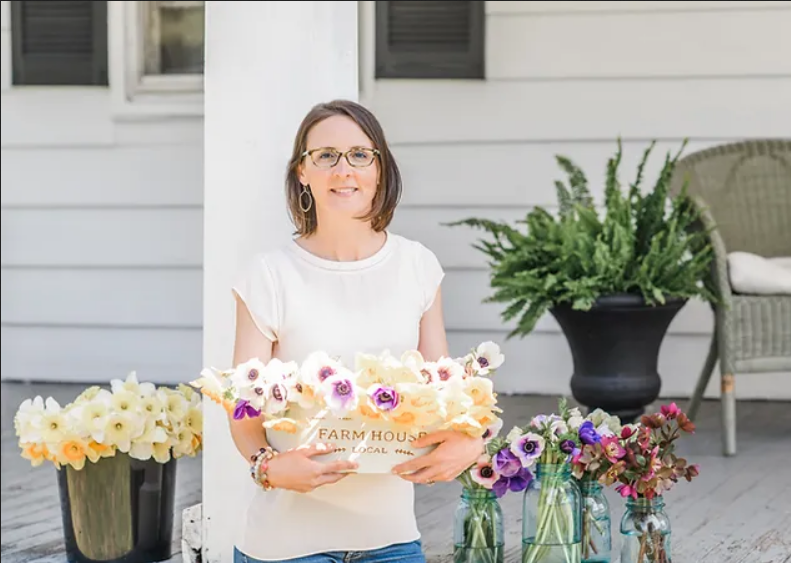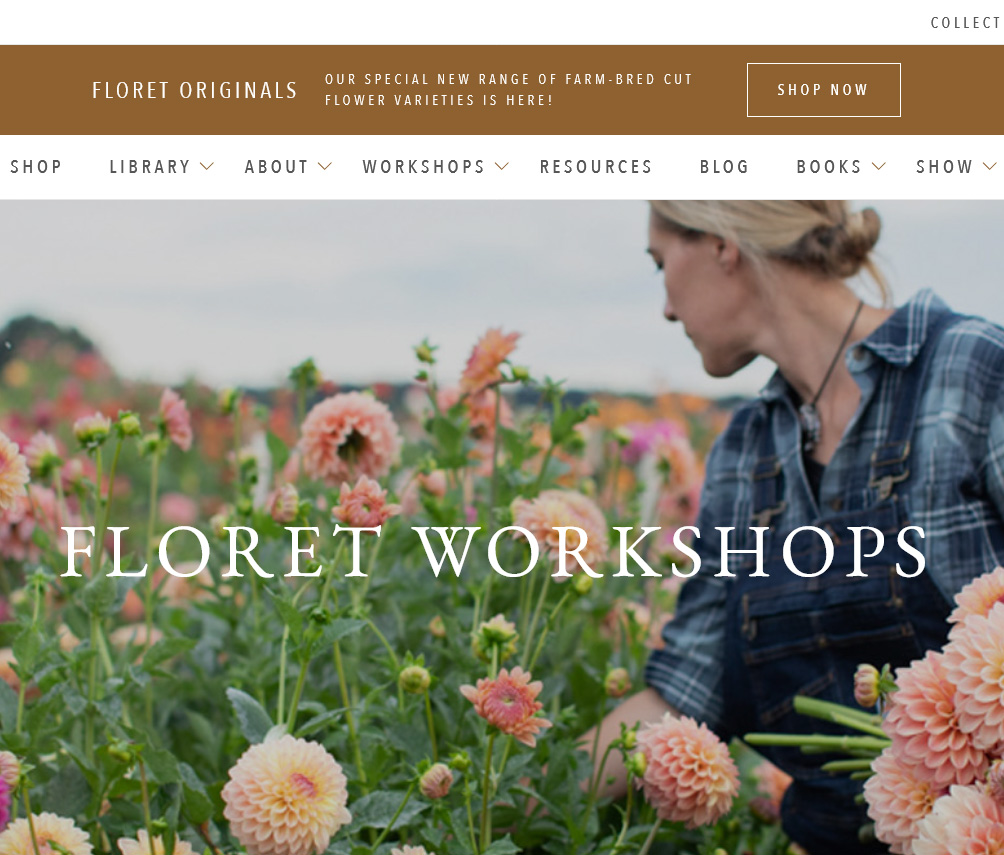
Sarah Wood
Whitehall Flower Farm
Williamsburg, Virginia
I had the pleasure of interviewing a group of specialty farmers in front of the fireplace at Jolly’s Mill Pond, our family farm in Williamsburg, VA.
I was with a group of raw land startups, including Sarah Wood from Whitehall Flower Farm. Each farmer shared their story and insight into the variety of ways you can launch and run a flower farm.
Sarah and Jim Wood are 8th-generation owners of Whitehall Farm, an 18th-century historic property. It was started by Sarah’s family, the Geddys, who were silversmiths in Colonial Williamsburg. They’d become successful enough in their trade that they were able to move out of the town and buy property in the country.
Farm History
The original farm sat on about 300-400 acres in the 1700s, but now consists of 42 acres.
Sarah shares: “We have had different businesses over the years. My dad’s the owner, Burt Geddy, and probably the most current business he had was boarding horses there. And during the ‘80s and ‘90s, we had a barn and about 15 horses there. The insurance costs and liabilities became too high and he closed it. After that, the farm was just for family use.”
During the pandemic, she spent more time on the farm. An avid home gardener, she decided to try growing flowers.
Why did she choose flower farming?
I think flowers are a special thing that you can share with folks and bring a lot of joy. You can grow them most of the year. They’re not like animals. They don’t require a high maintenance. I can’t necessarily be there every single day to day in and day out and feed animals.
What does she grow?
She grows about 20 different varieties of specialty cut flowers. These are flowers that you can’t necessarily buy in the grocery store. And they usually don’t ship well. She grows dahlias, poppies, Iceland poppies, ranunculus, and anemones. In the summer she has a selection of zinnias, sunflowers, and other heat-loving varieties.
What has the learning curve been like?
It’s been a huge learning curve. I’m still learning. I took two different flower farming courses. That’s where I started. I really believe you need the education to get going.
I took a course from Lisa Zeigler. She has a flower farm in Newport News, the Gardeners Workshop, and she’s an amazing teacher. She has 20-plus years of experience. I started there.

I also took another course from Erin Benzakein at Floret. She’s on the West Coast.
So I was doing the practical things at the farm while I was learning. And just trial and error. A lot of trial and error. A lot of things fail.
Flower Farming Realities
The summer gets really hot. It can be miserable actually. The heat and the humidity here are sometimes unbearable. But once you get that first crop that’s succeeded… you’ve harvested and put flowers in people’s hands.. it’s just such a good feeling. It’s amazing!
I love having my hands in the dirt. I love just being outside. I love seeing the beauty of vegetables and flowers. And so that part of it is a big part for me. And I love people’s stories when they want to buy flowers from me.
I had a lady call the other day. Her sister-in-law’s husband had passed away a year ago. She wanted to commemorate that and give her something special. And so she just called me and I was able to deliver flowers for a really important reason.
And is this your sole source of income?
Oh, no. I’m in the second year and I’ve never gotten a paycheck. We’ve invested our personal funds into the business. In order to be able to get it off the ground, you got to be able to fund things in other ways. I have early retirement from teaching and I have a job that I work from home for a large company. I go to the farm at lunchtime or I’ll go super early in the morning before I even start work so I can I can fit in the time to be at the farm.
What would your advice be about getting started in that first year?
I would say just start small. My very first one was literally a long row where I segmented it and experimented with different types of flowers and now we grow on about a 1/4 acre. So I started with a 150-foot bed and tried a variety of things.
Just start small and be willing to be disappointed. There are lots of disappointments, but also once you have some success, it can really motivate you and fuel you.
Find people that can help you, that you can ask questions, take a course and be flexible.
Whitehall Flower Farm’s website:www.whitehallflowerfarm.com
Instagram: https://www.instagram.com/whitehallflowerfarm
Facebook: https://www.facebook.com/whitehallflowerfarm
